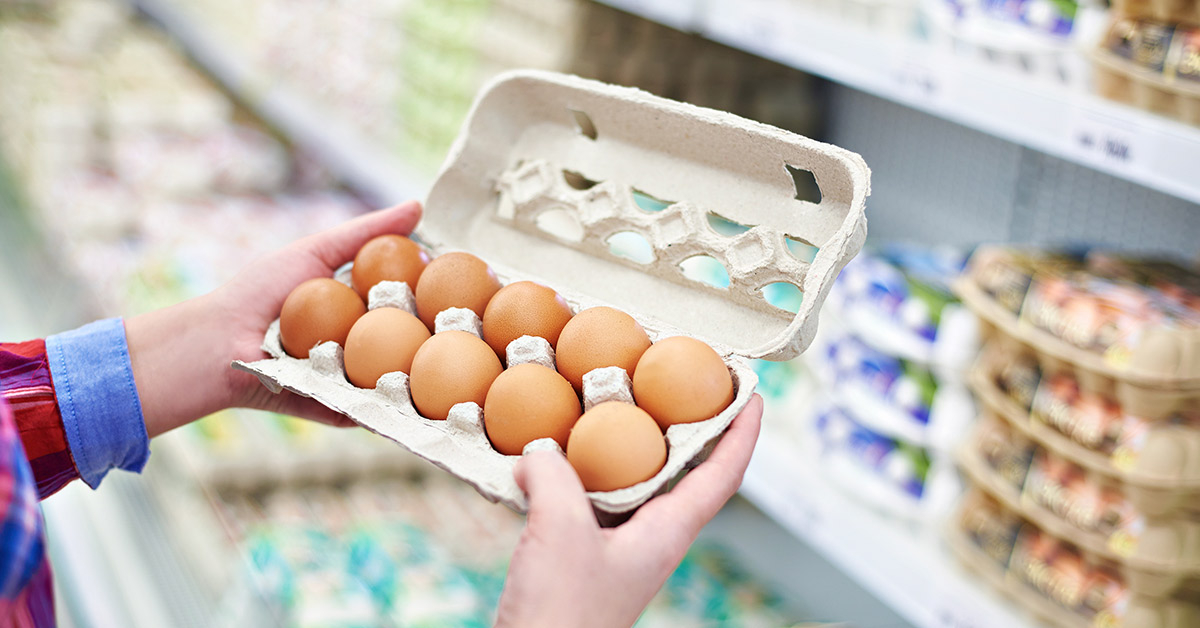Love eggs? What if I told you those grocery store eggs you bought could be 30-45 days old by the time you eat them?
As a society, we’ve come to use expiration or best-by dates to guide us when shopping for fresh produce, meat, dairy, and alternatives. And why wouldn’t you? Companies must follow food regulations for their products to be put into stores and supermarkets. We should trust these dates for food safety; however, you might be surprised how long certain products are sitting on the shelf – specifically eggs! [1] You see, along with the best-by date, an additional code tells you when they were packaged.
J&J Acres, a small farm located in Toombusa, Mississippi, wants you to know about this code and decided to do a little experiment in their local supermarkets. Using this code, they were able to show us just how “farm fresh” grocery store eggs are. They documented all of this in a viral video.
Find the real age of the grocery store eggs you’re buying

Image Credit: FreshEggsDaily
A representative from J&J Acres went through a process to inform his viewers how they can tell the true age of the eggs they are buying. He advised shoppers to stop paying as much attention to the best-by dates but instead take a look at the three-digit code printed above it.
In the image above, do you see the number that is circled in orange? That’s called the Julian code – and it’s an accurate way to understand your grocery store eggs’ true freshness.
Read More: Grandmother shares a piece of wisdom using a carrot, eggs and coffee
What’s the Julian Code?
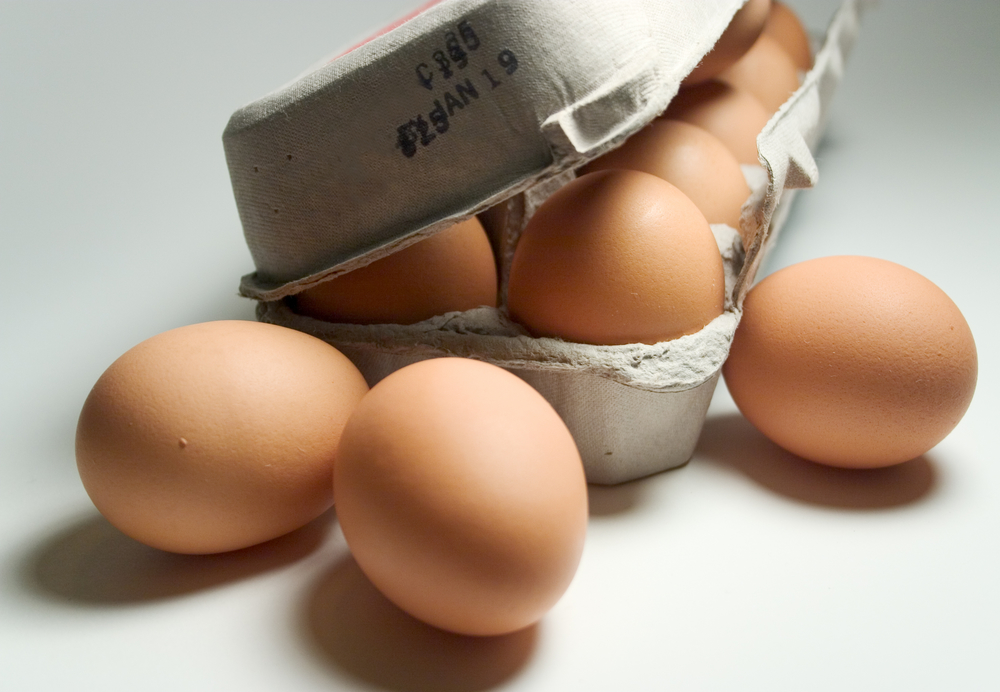
The Julian code tells you what day of the year your eggs were packaged. Based on the above image, these eggs were packaged on the 352nd, 355th, and 354th day of the year. That’s December 18th, 21st, and 20th, respectively.
Now, look at the best-by date on the first one – February 12th. So, if a consumer were to eat these eggs on the last day of recommended consumption, these particular eggs would be over 50 days old. Do you feel comfortable eating 50-day-old eggs?
Try the math in stores near you
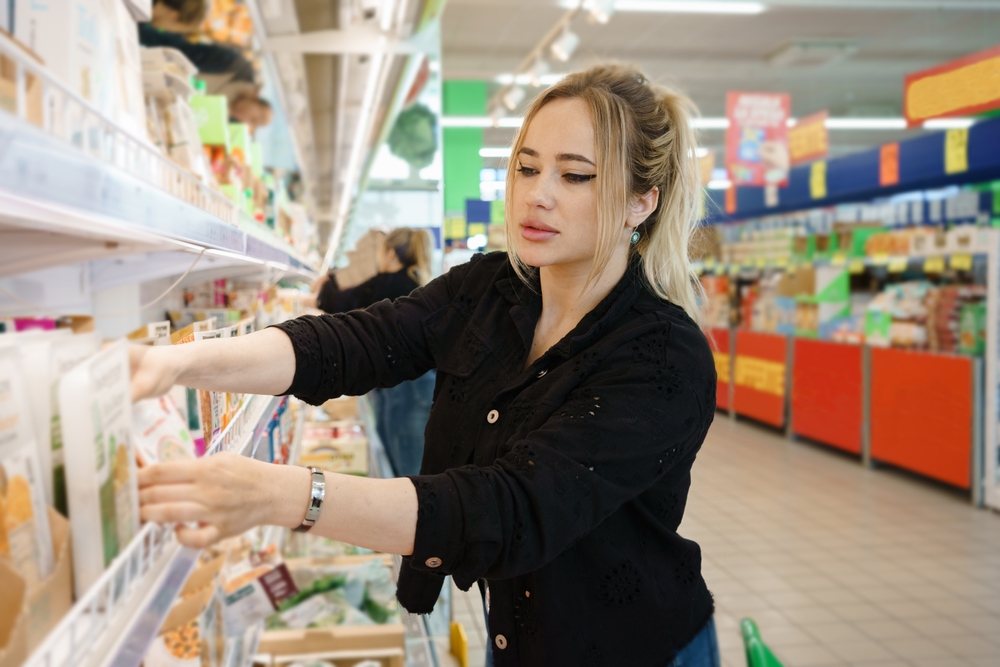
If you think this is a one-off situation, think again. The farm did this exact experiment at various other local supermarkets and got the same result. In fact, the freshest eggs that J&J Acres could find were already nine days old [1]! You can see for yourself and check out the video below!
Is this legal?
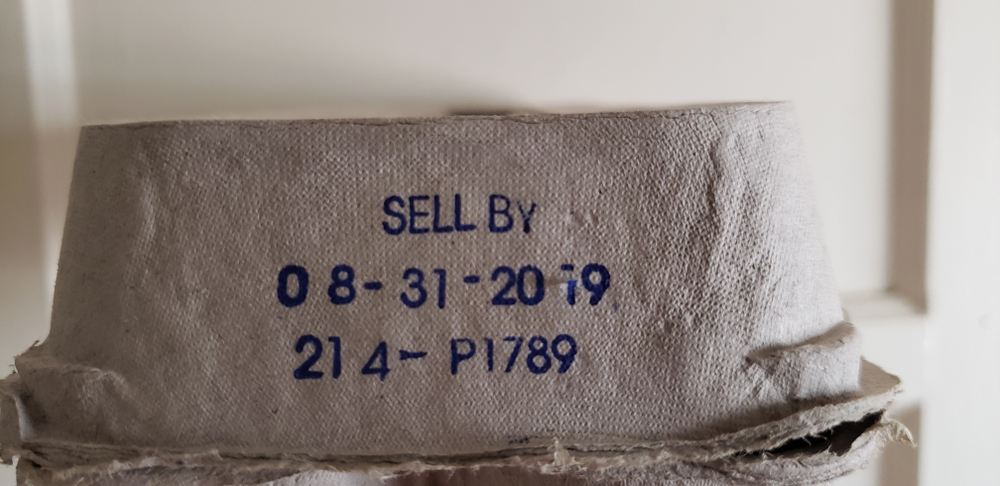
This process is 100% legal and here’s why:
- Expiration dates are 30 days from the day a product was packaged
- Best-by dates have 45 days from the time the product is packaged to the time consumers buy it [2]
J&J Acres searched for egg-specific regulations that concern the egg’s lifetime, from when the chicken lays it to when it is packaged.
“How long does it take for commercial growers to clean and sort and then package these eggs? We don’t know, but we found it interesting that amid all the regulations, that seemed to be completely unmentioned,” says a J&J Acres representative [1].
Don’t panic. However, there is a chance that the eggs in your house right now are even older than 30-45 days. From a food safety point of view, is this a concern? Not really; they are safe to eat, meaning that they shouldn’t cause illness. But are they “fresh”? Not really.
Read More: The Benefits of Eating Eggs (Even Everyday)
So, how do I get fresh grocery store eggs?
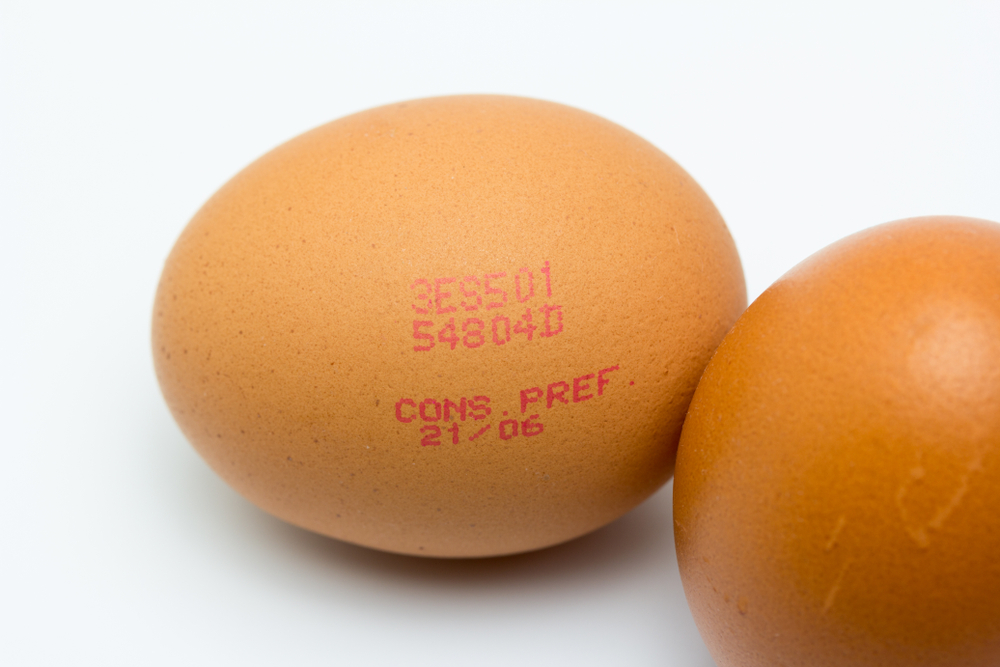
We all want to make sure our families get the best and most nutritious food (and, of course, the freshest). But if supermarkets all carry eggs that, on average, are 20 to 27 days old [3], how the heck do I get fresh eggs?
Well, the answer is quite simple – buy local [4]. No, I’m talking about your local supermarket that sources its products possibly from all over North America. I’m talking about farms and local egg producers.
As a small farm themselves, J&J Acres encourages shoppers to find eggs that are locally sourced.
“I guarantee you that if you find a local egg producer, a little family farm that’s selling eggs, buying a dozen eggs from them is going to mean the world to them.” A J&J Acres representative says. “If you’re in a place where you can have your own chickens, then why not, instead of having eggs that are 45 days old, have an egg that’s only been there for 45 minutes or maybe even less and go out there and harvest your own eggs and provide for your family,” [2].
Of course, this experiment was conducted in Mississippi, and depending on where you live, the average age of supermarket eggs could differ. Labeling regulations are also different in other countries. But then again, it won’t hurt you to put the eggs in your local stores to the test and use the Julian code to see just how old your eggs really are.
Read More: There is a Right Way to Remove Eggs from Cartons. Who Knew
